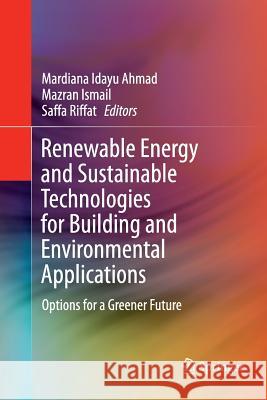Renewable Energy and Sustainable Technologies for Building and Environmental Applications: Options for a Greener Future » książka
topmenu
Renewable Energy and Sustainable Technologies for Building and Environmental Applications: Options for a Greener Future
ISBN-13: 9783319811338 / Angielski / Miękka / 2018 / 252 str.
Renewable Energy and Sustainable Technologies for Building and Environmental Applications: Options for a Greener Future
ISBN-13: 9783319811338 / Angielski / Miękka / 2018 / 252 str.
cena 401,58
(netto: 382,46 VAT: 5%)
Najniższa cena z 30 dni: 385,52
(netto: 382,46 VAT: 5%)
Najniższa cena z 30 dni: 385,52
Termin realizacji zamówienia:
ok. 16-18 dni roboczych.
ok. 16-18 dni roboczych.
Darmowa dostawa!
Kategorie:
Kategorie BISAC:
Wydawca:
Springer
Język:
Angielski
ISBN-13:
9783319811338
Rok wydania:
2018
Wydanie:
Softcover Repri
Ilość stron:
252
Waga:
0.38 kg
Wymiary:
23.39 x 15.6 x 1.45
Oprawa:
Miękka
Wolumenów:
01
Dodatkowe informacje:
Wydanie ilustrowane











